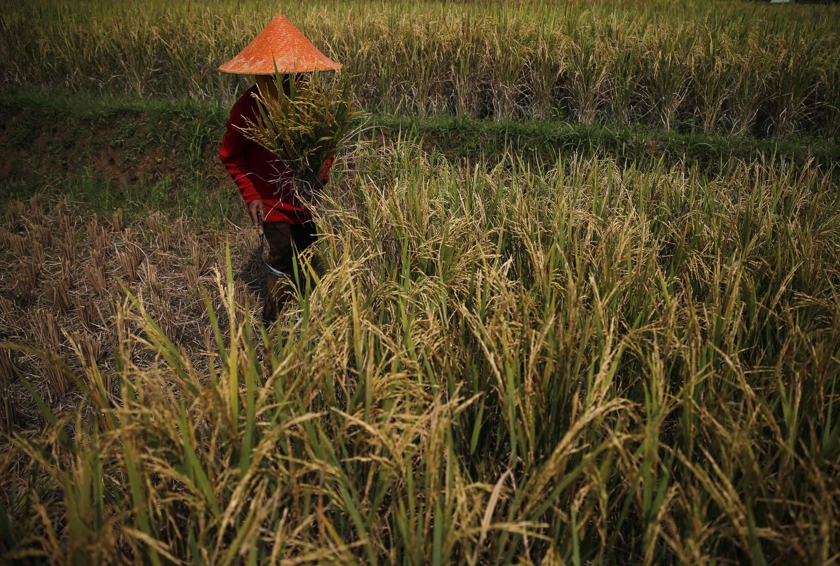KUALA LUMPUR, Dec 30 — The monopoly of Padiberas Nasional Sdn Bhd (Bernas) over Malaysia’s rice supply is becoming a hot issue among some farmers for the upcoming 14th general elections, Straits Times reported today.
The Singaporean daily said the issue became a sensitive topic after some of the farmers complained to Putrajaya in October that the billion-ringgit company owned by tycoon Tan Sri Syed Mokhtar al-Bukhary had allegedly committed unfair trade practices.
According to KRA Group political analyst Amir Fareed Rahim, paddy farmers and staple commodities are “very sensitive issues” due to their position as a rural vote bank for ruling coalition Barisan Nasional (BN) in the Malay heartland.
“It is a critical issue for BN to try to resolve, especially since Kedah — the country’s rice bowl — is a swing state and one of the battlefronts in the upcoming election.
“Silence without attempting to resolve it will be very dangerous,” Amir reportedly said.
Roughly 400,000 rural voters are farmers, with nearly three-quarters of that number being paddy farmers. Many of these farmers hail from Kedah, Perlis and Perak.
They form 11.2 per cent of Malaysia’s registered voters and traditionally have supported the ruling Barisan Nasional (BN) government, the report said.
When it was founded in 1971, Bernas was originally Malaysia’s state-run rice board tasked with maintaining adequate rice supplies, keeping prices fair and stable for both farmers and consumers and also to improve the industry.
After it was privatised in 1996 and became a for-profit company under the tenure of then prime minister Tun Dr Mahathir Mohamad, it continued its obligations.
The report said that 20 years down, the road paddy farmers are now “up in arms” over the company’s alleged failure to protect the local industry as it is allegedly favouring cheaper imported rice to line its own pockets.
Muhammad Rafirdaus Abu Bakar from Padi Rescue, an NGO representing farmers, rice millers and warehouses, was reported saying that all they wanted was “harmony in the industry” and to inform the public that Bernas “is not protecting” their interest.
The NGO had submitted a memorandum to the Prime Minister’s Office in October, seeking an end to Bernas monopoly of Malaysia’s rice supply, including the sole right to import rice until 2021.
Some of the complaints cited include that deduction rates — a portion of the crops rejected for impurities — have gone up, leaving farmers with less payout for their harvest.
Padi Rescue also alleged that Bernas is importing more cheap low-grade rice, causing small-scale rice millers to shut down as it monopolises the rice production chain.
Bernas has denied the allegations, including that of monopoly adding that it was not trying to sideline local rice.
It has also issued a lawyer’s letter to Padi Rescue, demanding the group to stop issuing “defamatory statements or face legal action”.
Malaysia produces about two million tonnes of rice annually while the nation’s annual consumption is three million tonnes. Last year, the country imported RM1.5 billion worth of rice to meet the shortfall.
It is the world’s 14th largest rice importer, leading rice farmers to reportedly question why the government prefers imports to fill the gap instead of focussing on higher rice production.



















